
EU4Youth grant opens the way for young social media expert in Ukraine
Like many others in the industrial city of Mariupol, Ekaterina Steinberg, now aged 31, acquired an education in metallurgy, but having graduated from the university she understood there was no way she would go to work at the factory. Having received her diploma, while she still had free time, she decided to earn some extra money by writing texts on demand, and discovered an unexpected talent.
It turned out that she could have a fair remuneration without leaving home. However, even for freelancers, the start of military operations in the Donbass became a problem: the VKontakte social network was blocked, and it became difficult to withdraw cash from electronic payment systems. Moreover, her husband’s business was suspended due to problems with delivery and the decrease in demand.
Ekaterina was therefore relieved that remote work with several clients helped her to keep working and adapt to market change. It became even more relevant when she gave birth: “My maternity leave lasted for ten days. Soon after, I gradually started accepting new orders trying not to lose income.”
Ekaterina tried all types of copywriting and internet-marketing, but decided to devote herself to SMM – managing the social media pages of other companies, organisations and even individuals, who want to be properly represented on these platforms and to communicate effectively with potential clients. “If you are a freelancer, you need to study all the time. Everything is changing fast and the information which was relevant a year ago is outdated today…”
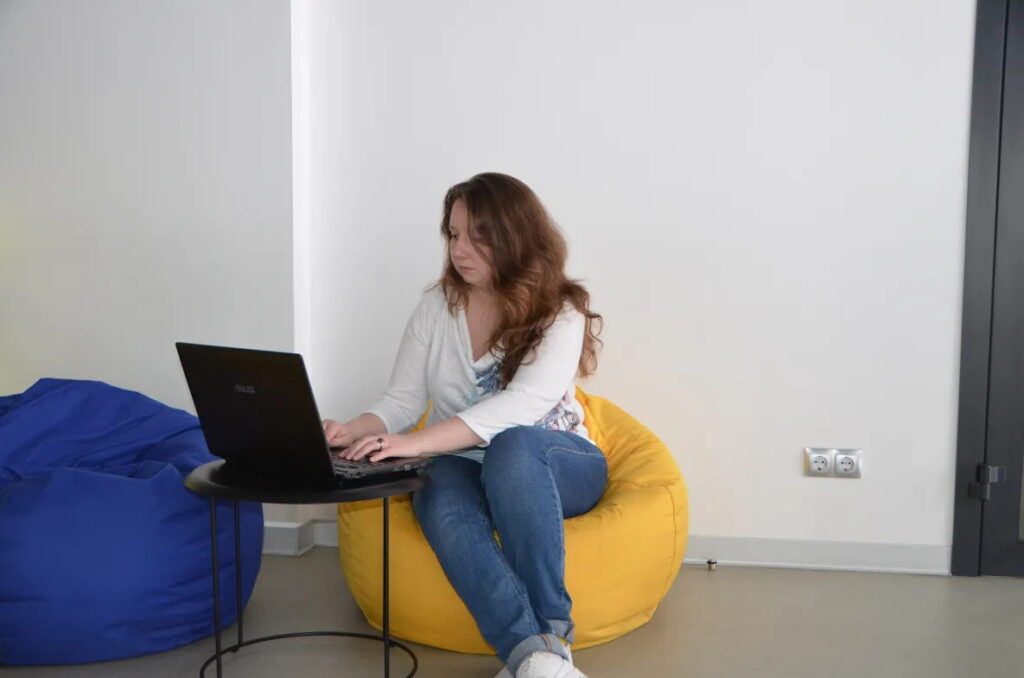 Ekaterina Steinberg
Ekaterina Steinberg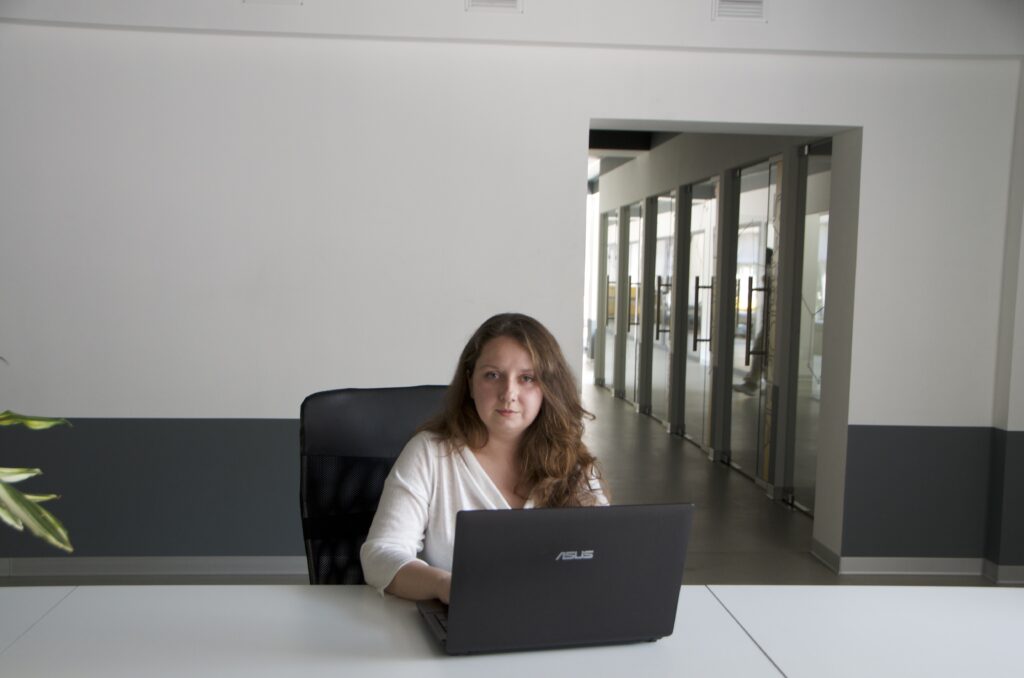 Ekaterina Steinberg
Ekaterina Steinberg EU4Youth grant opens the way for young social media expert in Ukraine
EU4Youth grant opens the way for young social media expert in Ukraine
But at some point, Ekaterina realised that in order to develop effectively, improve the quality of her work and consequently her income, she needed a specific education. Preferably in an online school with a good rating and with the delivery of a certificate to prove her level. And the older her child became, the higher the expenses and her need to earn more.
But the cost of a good quality education was beyond Ekaterina’s budget. So when she read on social media about a grant competition organised by the project EU4Youth – Enhancing Youth Education, Employment and Participation in Conflict-affected Areas in Georgia and Ukraine, she decided to submit an application. The EU-funded project is implemented by the Danish Refugee Council in partnership with Mariupol Youth Union.
Before submitting her application, Ekaterina thoroughly studied the subject and determined her next steps. She was thus able to present comprehensive information on the importance of the course she wanted to follow, and how it could help to increase her competitiveness on the job market in general and as a freelancer in particular. Ekaterina’s application was supported by the project’s competition committee because in her application as well as in the interview that followed, she showed a clear understanding of her goals and how to reach them. Having received the grant and having paid for the online course, Ekaterina has been studying SMM for three months.
“Immediately after completing the course, I found several new and excellent orders which allowed to me increase my income. It turned out that the phrase ‘I am a certified SMM-specialist’ increases the chances of finding a good job,” says Ekaterina.
When Ukraine went into lockdown, Ekaterina discovered another advantage of freelance work – she does not depend on her working place and transportation and can be flexible and adapt to any crisis. “Yes, at the beginning of the COVID-19 pandemic, my income dropped. Two clients temporarily stopped collaboration. But soon I found other clients instead, that is why I now have even more work than at the beginning.”
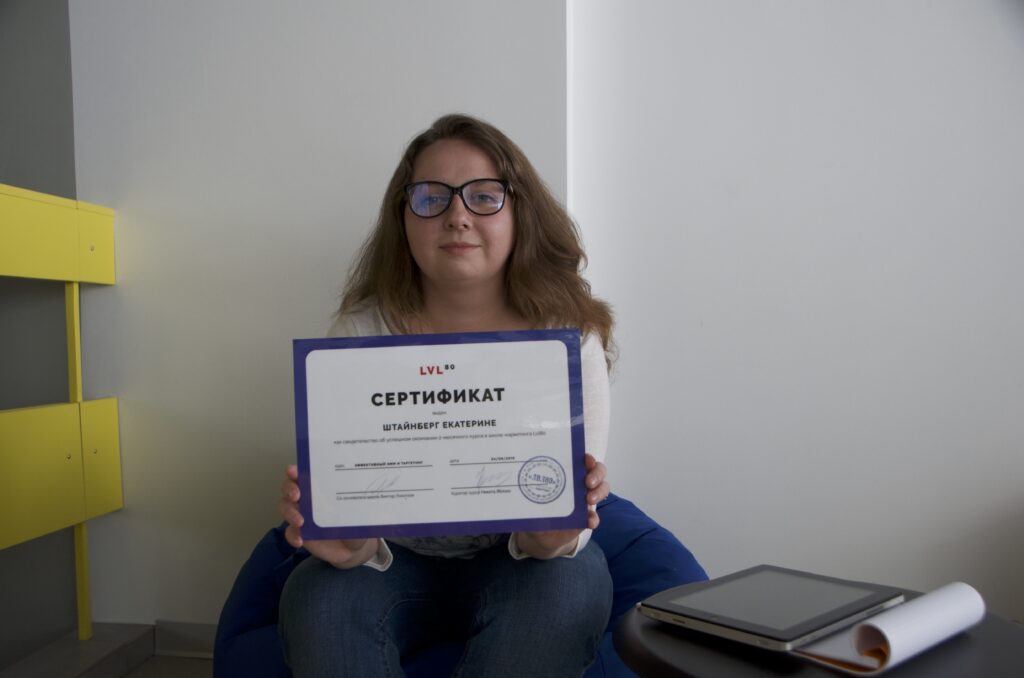 Ekaterina Steinberg
Ekaterina Steinberg Ekaterina Steinberg
Ekaterina Steinberg
Realising that many companies were faced difficulties because they could no longer manage their business the way they used to do, and were having to familiarise themselves with social networks very fast, Ekaterina gave consultations on her page about promoting on social networks.
“I was contacted by a psychologist, a director of a company selling fishing equipment, a guy who manufactures designer jewellery from wood and the owner of an online shoe shop. I hope my advice will help them!”
Ekaterina is grateful to the European Union for the opportunity to fulfil her potential: “I would have been saving for this course for a long time. Perhaps I would have even had to borrow money from my friends or to take a loan in a bank, which is not easy if not impossible to do right now in the Donetsk region. This programme really helped me out. And I am sure that there are still many young people like me in our region who need financial support to acquire knowledge. Keep up the good work, EU!”
Now Ekaterina wants to establish her own content agency to help Ukrainian businesses build effective online communications with potential clients and customers.
MOST READ
SEE ALSO
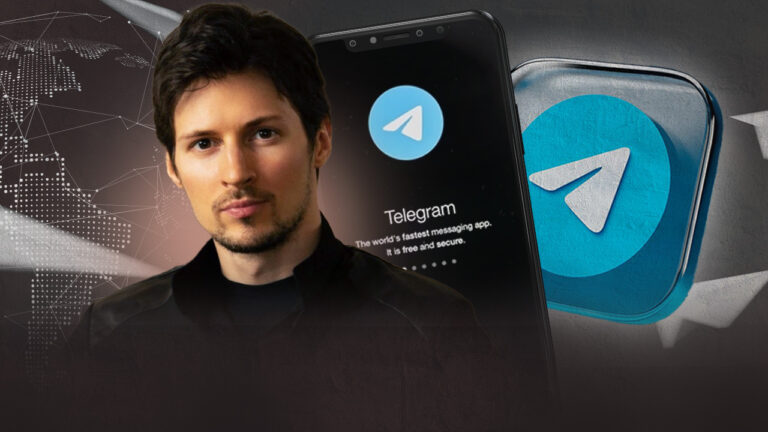
‘The Kremlin has entered the chat’: how to protect your personal data on Telegram and avoid the bait of propaganda

No, time is not on Russia‘s side
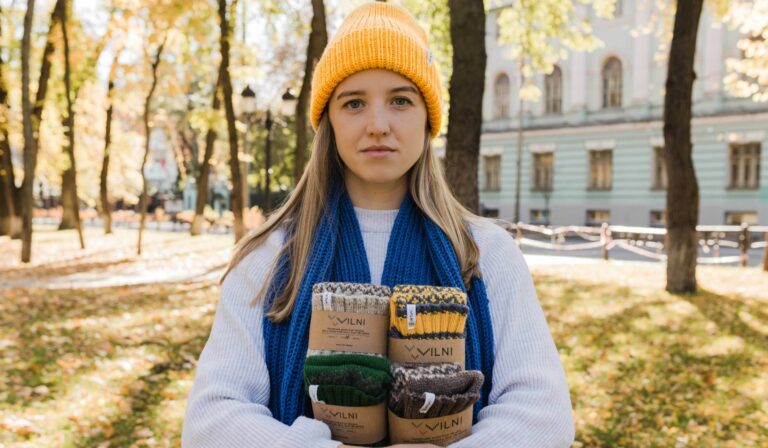
Socks for Peace: how the Vilni project is supporting internally displaced women in Ukraine
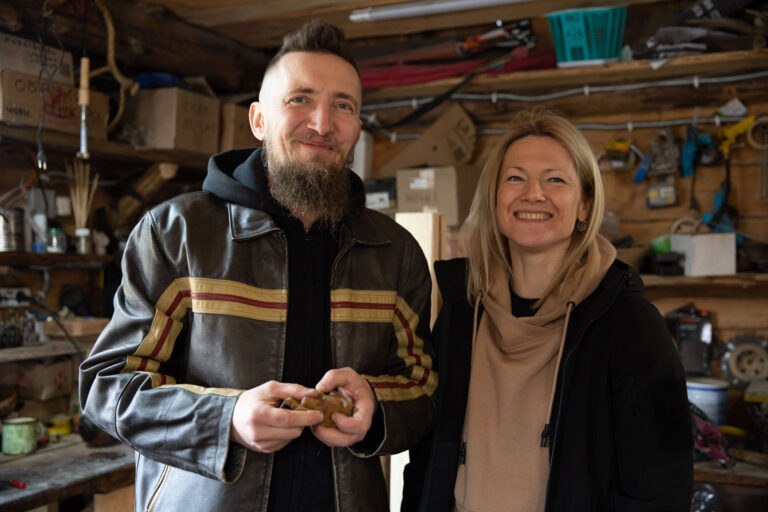
Celebrating traditional Ukrainian cultural identity in Rivne
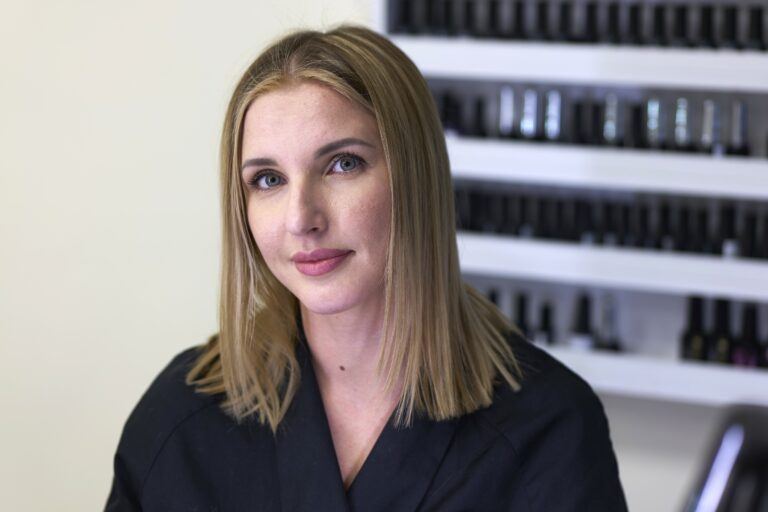
Natalia wanted her child to escape the war: how a single mother set up a successful business in Lithuania
More campaign pages:
Interested in the latest news and opportunities?
This website is managed by the EU-funded Regional Communication Programme for the Eastern Neighbourhood ('EU NEIGHBOURS east’), which complements and supports the communication of the Delegations of the European Union in the Eastern partner countries, and works under the guidance of the European Commission’s Directorate-General for Neighbourhood Policy and Enlargement Negotiations, and the European External Action Service. EU NEIGHBOURS east is implemented by a GOPA PACE-led consortium. It is part of the larger Neighbourhood Communication Programme (2020-2024) for the EU's Eastern and Southern Neighbourhood, which also includes 'EU NEIGHBOURS south’ project that runs the EU Neighbours portal.

The information on this site is subject to a Disclaimer and Protection of personal data. © European Union,







